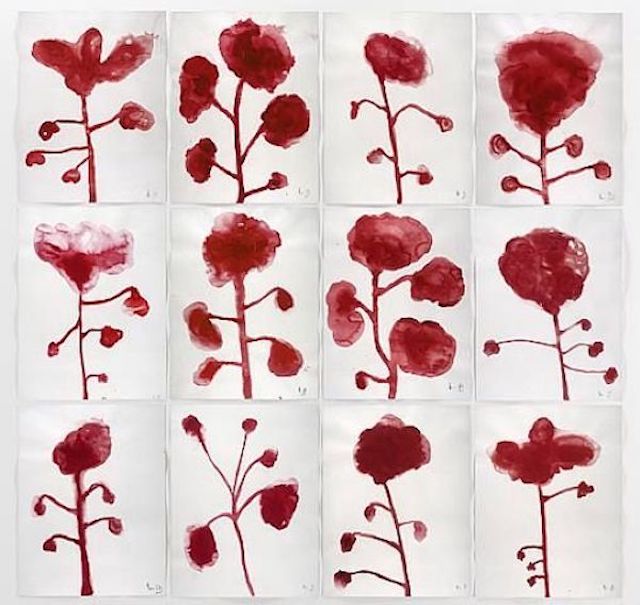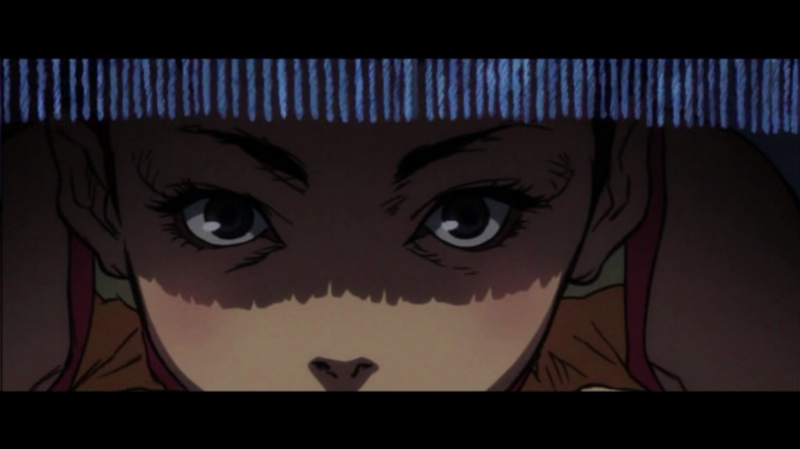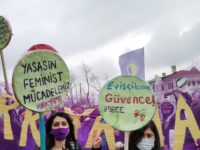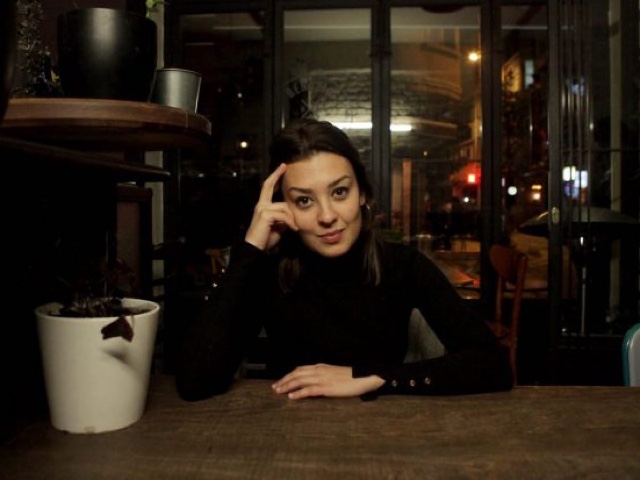With a title like the one above, it might seem as if I will provide an answer to this question somewhere in this piece. In fact, though, I will be asking the question throughout the entire article.
While the news coming out regularly about violence against women—especially when it has a strong media dimension—is frustrating, harrowing, and demoralizing, it is also conjuring up many valuable discussions. Sometimes these discussions involve people who are keenly aware of what love is not presuming to tell women, “That is not love.” And so it is that we end up with phrases like “Love is not emotional or physical violence” or “Love is not jealousy, lunacy, or destruction” or “Don’t put this morbid romanticism up on a pedestal” or “Make sure to love yourself first.”
But I’ve noticed something: while we’re perhaps a bit obsessed with addressing adult women and thinking about what to say to women who have been subjected to violence, we don’t think nearly so much about what to say to children subjected to violence, especially to children who have been neglected or abused by their parents or by others expected to provide them with security and love. There are two main reasons I’ve noticed this: 1) “Concerns” like love, attention, and self-esteem are all grounded here, in childhood; and 2) I myself didn’t start life as an abused woman, but as an abused child—something should have been said to me earlier.
So what was said, then?
Domestic violence was part of my life even before I came into the world. Up until the age when I was able to leave home, it was a part of my life that made me always watch myself, check myself, try to take control of myself. At first the violence was direct, and later became more distant, more indirect, less physical in nature. It became like a chronic sickness that left its mark on everything, from my daily life to my choice of partner, from my living conditions to the resistance I put up against life’s difficulties. When I was a child, there were some who understood and “sympathized”—relatives, teachers, friends—and whenever they tried to show me support they always came up with the same words of consolation: Of course your father loves you! He’s very fond of you. Don’t fathers always love their children? He loves you very much; he’d do anything for you; he’s always talking about how smart you are; he’s so proud of you, you know, even if he doesn’t show it. Fathers don’t always show their love, but they always love…
And then, precisely because this was a kind of physical and emotion devastation that could not be brushed aside or ignored, this little introduction would be followed by justifications: He’s under a lot of stress at work or He grew up without a mother and father or He’s suffers from terrible headaches and can’t sleep…
And then came this: He does that, but don’t you see how bad he feels about it? Look at all the stuff he buys you. When you’re asleep he keeps watch over you and caresses your hair.
All these consolations were coming from different sources: sometimes from my mother, who every other day was subjected to the same violence and who did her best to get me out of my father’s hands; sometimes from my aunt, who saw everything but could do nothing; and sometimes from the teacher of my religion and morals class, who I would ask, “I’m more afraid of my dad than of God, will I still go to heaven?” And after a while the consolations started coming from myself, too: I didn’t need anyone else’s consolation anymore, I started to explain to myself what was happening to me, I started consoling myself—because that was what I needed.
And yet even before I started school I kept on saying, Dad doesn’t love us, and they kept on answering with, Your father loves you all very, very much.
I don’t think that children are angels or flowers or special snowflakes or anything like that, but I do think they’re better than adults at knowing whether or not they’re being loved, whether or not they’re accepted. Because from the very beginning of their lives, they’re forced to become experts in reading their mother and father’s faces for clues about what’s going to happen to them. A certain quaver in their parents’ voices, a glance at one another… Situations, people, or words that will trigger arguments, cursing, beatings… Children are masters at recognizing such things and carving them into their memory. As I see it, if a child doesn’t think he or she is being loved, then he or she isn’t being loved. It’s not so easy to say this about adults, because most adults’ once sharp instincts about love and attention are dulled by years and years of false consolations, of well-intentioned but far too acquiescent reassuring approaches. Or at least my instincts have been dulled. Because after my father, I was never again able to so clearly say, “He doesn’t love me” about any of my abusers who had a tendency toward violence. Oh sure, I would say, “He’s actually a good person, it’s just…” And I’d say, “He just needs help.” And I’d mumble things like, “He loves me but he’s got issues.” For a long time I did this, and in the end I became an adult expert in giving myself cold comfort. An adult unable to say, “It’s simple: he just doesn’t love me.” An adult always looking for an excuse, always trying to be understanding, and always refusing to simply leave.
So lately I’ve been thinking quite a bit… After years upon years of suggestions like these, with your mother and aunt and teacher and friend and the one you love all giving you the same consolations that you’ve come to accept and embrace, suddenly something happens and somebody comes along and says, “That’s not love.” And then you remember that simple clarity that you’d forgotten. No, that really isn’t love. I knew this already but they made me forget it—and supposedly for my own good, too. Because no one was able to tell the 3-year-old or 5-year-old or 8-year-old me, “Your father doesn’t love you. Your father doesn’t even love himself, so he can’t love anyone else.” Of course it wouldn’t have been easy to say this, but if they had said it, everything would have been so much easier for me, both then and afterward.
I don’t know how we should speak to children, though maybe this article will help lead to some good ideas about what can be said. But there’s one thing I’m sure of: families must be protective and create a nourishing, healing environment full of love, attention, and caregiving. How happy are families that do this! Yet there are so many that don’t. When you say that family is sacred “no matter what” and when you say that mothers and fathers love their children “in spite of everything” and so the children must love them back—when you do this, you are doing a terrible, terrible thing. Perhaps we ought to be able to tell children that in some families love and attention is not so healing after all, that some families are lacking something fundamental, that some mothers and fathers might not be capable of truly loving. We ought to be able to tell children in such situations that even though every family has a certain amount of friction, what they have experienced or are experiencing goes well beyond “friction.” Then maybe children won’t lose their sharp instincts about love and attention, their trust in their own inner voice won’t be shaken to its core, and they’ll be able to recognize abuse when they see it and won’t start wondering, So is this just “misdirected love” or is it abuse? What do you think? If we shake up, even just a little, the idea of the sacred family and the lies of parents who by nature should serve as the fount of absolute and unconditional love, then can we perhaps raise more women and men capable of saying, “What you’re doing has nothing to do with love”?
Note: My own relationship with violence did not have a storybook ending; I am still struggling with it and am sure that I will do so till the day I die. I do not mean to say anything like, “Once you’ve encoded violence wrongly in your mind, it’s all over; good luck.” But even so, if you have, your struggle will not be easy and you will have to work at it. It is normal to sometimes get exhausted, to stop caring, to curse out loud—but even if, in the end, you shake it off and come to your senses, it will still be hard to find someone who is more resilient than you, who loves themselves more than you, who knows more about love than you. Without the victories of the women’s movement, I would simply be living out my “destiny”—and now, though I haven’t distanced myself as much as I would have liked, I am still not living out my real destiny, I mean the destiny that I consider worthy of myself. Sometimes, in job interviews when they ask me about my greatest achievement, I want to say: I’m not living out my destiny. And so, I would like to express my gratitude to the movement, which—without ever saying, “But it’s too late now”—has reached out to children who were falsely “consoled.” My own belated adult “guardian” has been the women’s movement, and I hope that now it will be able to reach out to even more children in the future.
Translated by Michael Sheridan.
Image: Louise Bourgeois, Les Fleurs.
For the original in Turkish please click here






